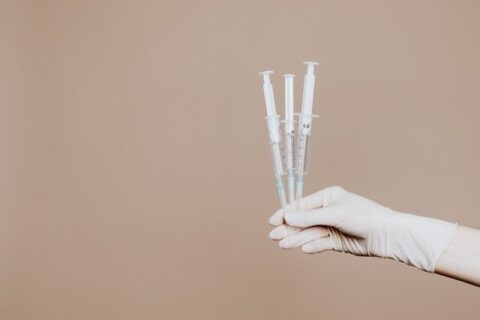Testosterone is a vital hormone that gives guys their manliness. It does, however, have a role in mental health and well-being in general. Testosterone may treat erectile dysfunction and other illnesses that influence masculinity. Therefore, understanding and raising testosterone levels may affect the aging process and be an anti-aging therapy. How does it work?
Testosterone is a hormone created mainly in the testes of males and the ovaries of females. It is released into the bloodstream, which can exert effects on specific organs and tissues. Like many other hormones, testosterone is recognized for its roles in sexual development and sexual functions. However, this hormone is also recognized for its impact on masculine behaviors, characteristics, and traits.
Testosterone receptors are present in many parts of the body, including the brain. This is why bodybuilders and athletes are interested in testosterone boosters, as they can make them feel better, think better and give them more energy. Testosterone can help bolster mood and promote a sense of well-being.
What Happens When Testosterone Levels Fall?
When testosterone levels decrease, it can lead to several health conditions. Testosterone deficiency can be particularly troublesome for men who experience a significant drop in testosterone levels, which can be due to many reasons.
Testosterone levels naturally begin to drop after a man reaches the age of 30. This is just a part of the aging process. As men get older, it is typical for testosterone levels to drop by 1 percent every year. This means that a man in his 30s will see a 10 percent drop by the time he reaches his 40s and a 20 percent drop by the time he reaches his 50s.
This decrease in testosterone levels can lead to changes in the body that can impact a man’s physical and mental health. Some of these include:
- Difficulty maintaining muscle mass
- Fatigue
- Decrease in bone strength
- Increase in body fat
- Depressed mood
- Loss of libido
- Loss of energy
- Less stamina
- Less motivation
One of the things a man can do to stay healthy is to keep his testosterone levels balanced. When a man begins to experience a fall in testosterone levels, he may start to feel lethargic, sluggish, and depressed. Rather than enjoying life to the fullest, he may feel like he can’t accomplish anything and that things aren’t worth the effort.
What Can Happen If Low Testosterone Levels Are Treated?
If you suspect that you may be suffering from low testosterone levels, you need to see your doctor. There are many symptoms that men may exhibit because of low testosterone levels. If left untreated, a man can experience a decline in his quality of life and increase the risk of developing depression.
You may be prescribed testosterone replacement therapy when your testosterone levels are examined. This will allow you to feel like your old self again, safely and naturally. You will feel more energized and will have the desire to go out and conquer the world.
If you desire to improve your testosterone levels and experience an overall improvement in your health, contact your doctor today. They may recommend testosterone replacement therapy to help you feel like your old self again.
Conclusion
Testosterone is intertwined with a man’s mental health. It can impact each area from motivation and concentration to the perception of pleasure. As such, boosting levels could help men improve their daily performance and well-being.
If you are looking for a facility that offers testosterone therapy in Houston or Woodlands, TX, the Z Med Clinic is an excellent choice. We are a reliable family healthcare facility offering world-class medical treatment and first-rate health and wellness services. Book an appointment today!




